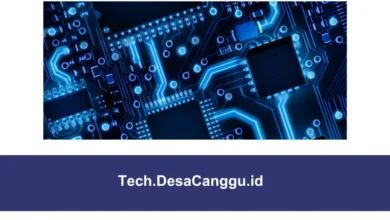A Guide to Engaging CSR Activities for Companies: Walk the Walk, Talk the Talk!

Consumers and workers alike are seeking businesses that place a high priority on social responsibility in the modern world. It is insufficient to merely declare one’s commitment to Corporate Social Responsibility (CSR). Businesses must actively engage in meaningful CSR initiatives that connect with both their workforce and the community in order to “walk the walk” and “talk the talk.”
With the help of this guide, businesses of all sizes may develop and carry out interesting corporate social responsibility initiatives. We’ll look at several tactics to increase staff involvement, improve the perception of your business, and have a good social effect.
Why do CSR Activities Matter?
Beyond the ethical imperative of giving back, there are numerous benefits for companies that actively engage in CSR:
- Employee Engagement: Companies that show a commitment to social good are likely to have motivated, productive, and loyal employees. CSR initiatives provide workers a feeling of direction and link them to a greater good.
- Enhanced Brand Reputation: Brands that share the values of their customers are attracting more and more customers. Participating in CSR initiatives enhances your brand image by showcasing your dedication to ethical business practices, sustainability, and community well-being.
- Attracting and Retaining Top Talent: Social responsibility is highly valued by Gen Z and Millennials. When trying to draw and keep top talent, a robust CSR program may make a big difference.
Engaging Your Workforce: The Key to Successful CSR
The success of any CSR initiative hinges on employee engagement. Here are some strategies to ensure your employees are actively involved and enthusiastic about your CSR activities:
- Align with Employee Values: When selecting CSR programs, consider conducting surveys or holding focus groups to understand the causes your employees care about most. This ensures their passion aligns with your CSR efforts.
- Offer Variety: Cater to diverse interests by providing volunteering opportunities across different sectors like environmental sustainability, education, or poverty alleviation.
- Make it Convenient: Offer flexible volunteering options, including during work hours, weekends, or virtual volunteering opportunities for geographically dispersed teams.
- Skill-Based Volunteering: Leverage your employees’ professional skills. Lawyers can offer pro-bono legal services to non-profits, while marketing professionals can help with branding initiatives for local charities.
- Recognition and Rewards: Acknowledge and celebrate employee participation in CSR activities. This reinforces the importance of CSR to your company culture and motivates continued engagement.
Beyond Volunteering: A Spectrum of CSR Activities
While volunteering is a cornerstone of CSR, there are various ways companies can engage in social responsibility:
- Cause-Related Marketing: Partner with a social cause and donate a portion of your proceeds from specific products or services.
- Employee Matching Programs: Match employee donations to charities, doubling their impact and demonstrating your company’s commitment.
- Sustainability Initiatives: Implement eco-friendly practices throughout your business operations, such as reducing energy consumption, using recycled materials, or supporting renewable energy sources.
Planning and Executing Memorable CSR Events
Organizing impactful CSR events fosters team building, camaraderie, and a sense of shared purpose. When planning your event, consider these tips:
- Set Clear Goals: Outline the specific outcomes you hope to achieve with your event. Is it raising awareness for a cause, collecting donations, or team building?
- Choose the Right Cause: Select a cause that aligns with your company values and resonates with your employees.
- Get Creative: Go beyond traditional volunteering activities. Organize a charity walk/run, a beach clean-up with a fun competition, or a community garden planting day.
- Promote Your Event: Leverage internal communication channels and social media platforms to generate excitement and encourage employee participation.
- Partner with Local Organizations: Collaborate with local non-profits or charities to ensure your event addresses a genuine need in your community.
- Measure & Share the Impact: Track the impact of your CSR event, quantifying the results (e.g., donations raised, volunteer hours) and sharing the success stories with your employees and stakeholders.
How to Leverage Technology to Boost CSR Engagement?
Technology can be a powerful tool to streamline your CSR program and enhance employee participation. Consider these solutions:
- Mobile CSR Apps: Develop or utilize an mobile event app that provides employees with a centralized platform to access volunteering opportunities, track their volunteer hours, and stay updated on upcoming CSR events.
- Social Responsibility Platforms: Online platforms connect businesses with non-profits and causes, simplifying the process of finding meaningful volunteer opportunities.
- Internal Communication Tools: Utilize internal communication channels to regularly communicate your CSR initiatives, showcase employee participation, and celebrate successes.
Building a Sustainable CSR Program: Beyond a One-Time Event
While one-off CSR events can be impactful, building a sustainable CSR program is key to achieving long-term positive change. Here are some strategies to ensure your CSR efforts are ongoing and have a lasting impact:
- Integrate CSR into Your Company Culture: Embed social responsibility as a core value of your organization. This means leadership actively champions CSR initiatives, and social good considerations are integrated into business decisions.
- Develop a CSR Policy: Create a formal CSR policy outlining your company’s commitment to social responsibility. This policy should define your goals, areas of focus, and how employees can become involved.
- Establish a CSR Committee: Form a dedicated committee composed of employees from various departments to champion CSR initiatives and spearhead program development.
- Track and Report Progress: Regularly assess the impact of your CSR program. Track metrics like volunteer hours, donations raised, environmental impact, and employee engagement. Use this data to inform future strategies and demonstrate the value of your CSR program to stakeholders.
- Communicate Openly & Regularly: Communicate your CSR team building activities and achievements transparently with employees, stakeholders, and the public. Use various channels such as internal communications, social media, and annual reports to showcase your commitment to social good.
Conclusion:
A good knock-on impact may be achieved by corporations actively participating in relevant CSR initiatives. Beyond the positive effects on the environment and community, a robust CSR program increases employee engagement, enhances the reputation of your brand, and eventually helps the business succeed in the long run. Recall that achieving social responsibility is a continuous process rather than a final goal. Your business may play a big part in creating a better world if you continuously talk the talk and walk the walk.



